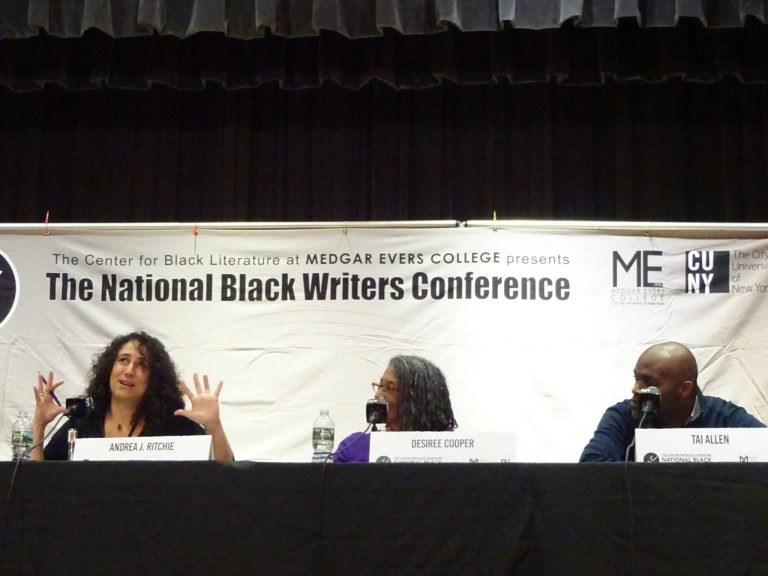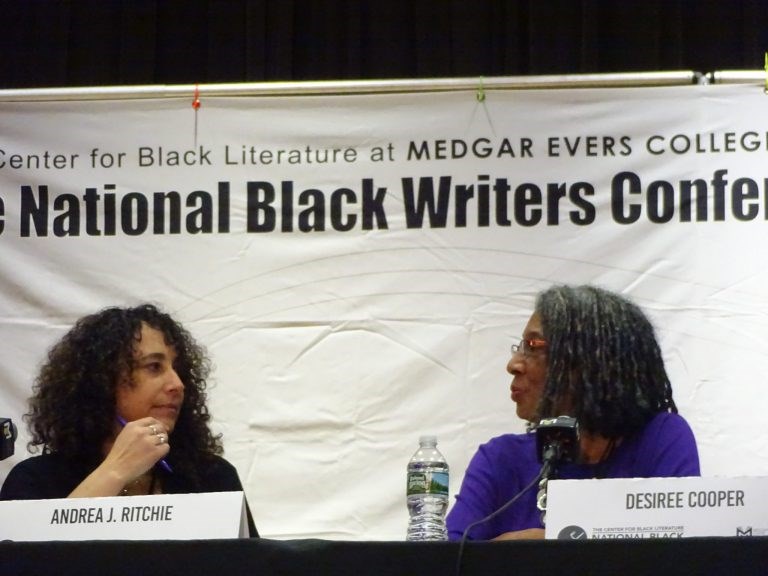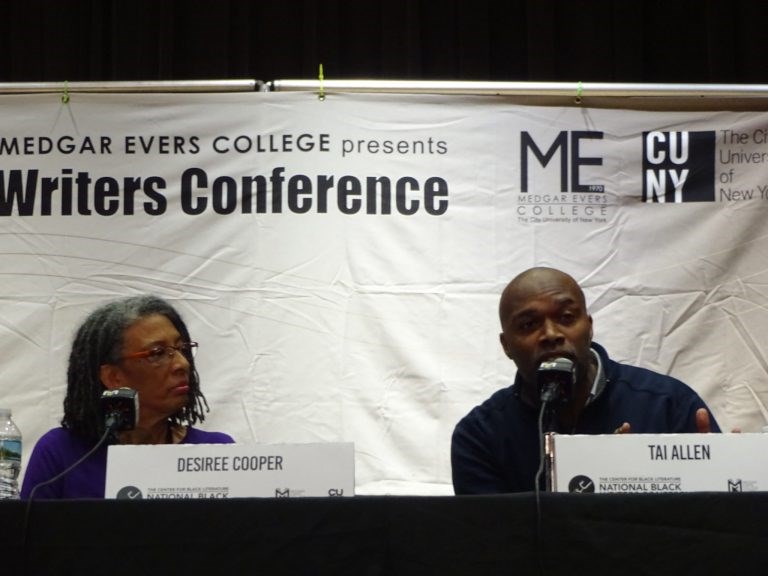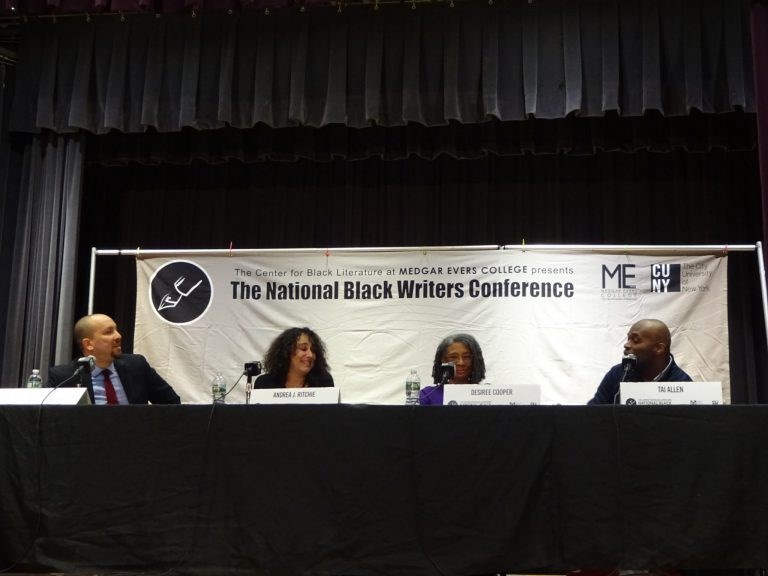Three authors tackled tough questions about the responsibility to heal their readers through their work.

What role do writers play in chronicling stories of trauma? How can a writer's work be a tool for healing? Is there room for nonpolitical stories in this time of heightened political awareness? On Saturday, March 24, the National Black Writers Conference invited a panel of writers to discuss these questions at Medgar Evers College.
The discussion titled 'Gathering at the Waters: A Call for Healing' was moderated by Josef Sorett, an associate professor of religion and African-American studies at Columbia University. He was joined by panelists Desiree Cooper, author and journalist; Andrea J. Ritchie, writer and police misconduct attorney; and poet Tai Allen. Follow their thought-provoking conversation below.

On the importance of telling traumatic stories:
Andrea J. Ritchie (AJR): What I've learned doing this work is that for women who have experienced [police] violence, to read the stories and to hear them told opens up a space for them to tell [their stories] themselves. Every single time I speak about this issue or do a workshop, someone comes up and tells me a story they've never told of being raped by a police officer, of being beat by a police officer they had called for help, of being threatened with police officers never showing up again if they called. For them, it's healing to finally have space where those stories can be told and can be part of the conversation, whether it's about police violence, violence against women, racial profiling or mass incarceration.
Desiree Cooper (DC): What keeps the trauma alive and unhealed is that there is no witness to the pain, but perhaps yourself, if you are able to even grasp the trauma that happened. What we have found over time is that the act of writing a trauma can help define it, contain it and weaken its power.

On the role of fiction and poetry in telling traumatic stories and finding healing:
DC: Where is the room in our reportage of mass incarceration for the women's voices to be heard who are not behind bars but who are left behind in communities that are ravaged by this?...This is where fiction and poetry can fill a gap, ask a question [and] can explore the question intimately.
On the political climate's effect on their work:
Tai Allen (TA): My work has been the same since I was fourteen: it's about saving black people, changing the world of black people and being a global black person. That's not going to change with an election of a black person or a person who likes the KKK.
On creating political work during this era:
DC: During the Black Arts movement, if your work wasn't political then it wasn't work because the zeitgeist at the time was 'You can't be fooling around with sunshine and rainbows in this juncture. You know we have work to do with our art.' I hope that we don't go [back] there this time. In this time, when I'm crying for my people and I'm crying for democracy and I'm crying for planet earth, I think I can write about daisies and grocery shopping and about the sacrifices of my soul that I gave in order to be a mother. I think that all these stories need to be there for mass healing to happen because we're just trying to get back to humanity. And if we redline out certain aspects of it, then we won't be able to get there.

AJR: I think those questions that are framed as nonpolitical are about human transformation. We can't get to where we want to go unless we learn how to transform our relationships with each other, our relationships with our mother, with our child, with our garden. That's to me revolutionary work and I would never say that your work [motions to DC] and mine are different. They're very much on a continuum.
TA: It can't just be all about fight, fight, fight. Falling in love is important.
Saturday's panel assured writers in attendance that during these times space exists for both fiction and nonfiction, as well as stories of trauma and stories of joy because they are all part of the human experience.



